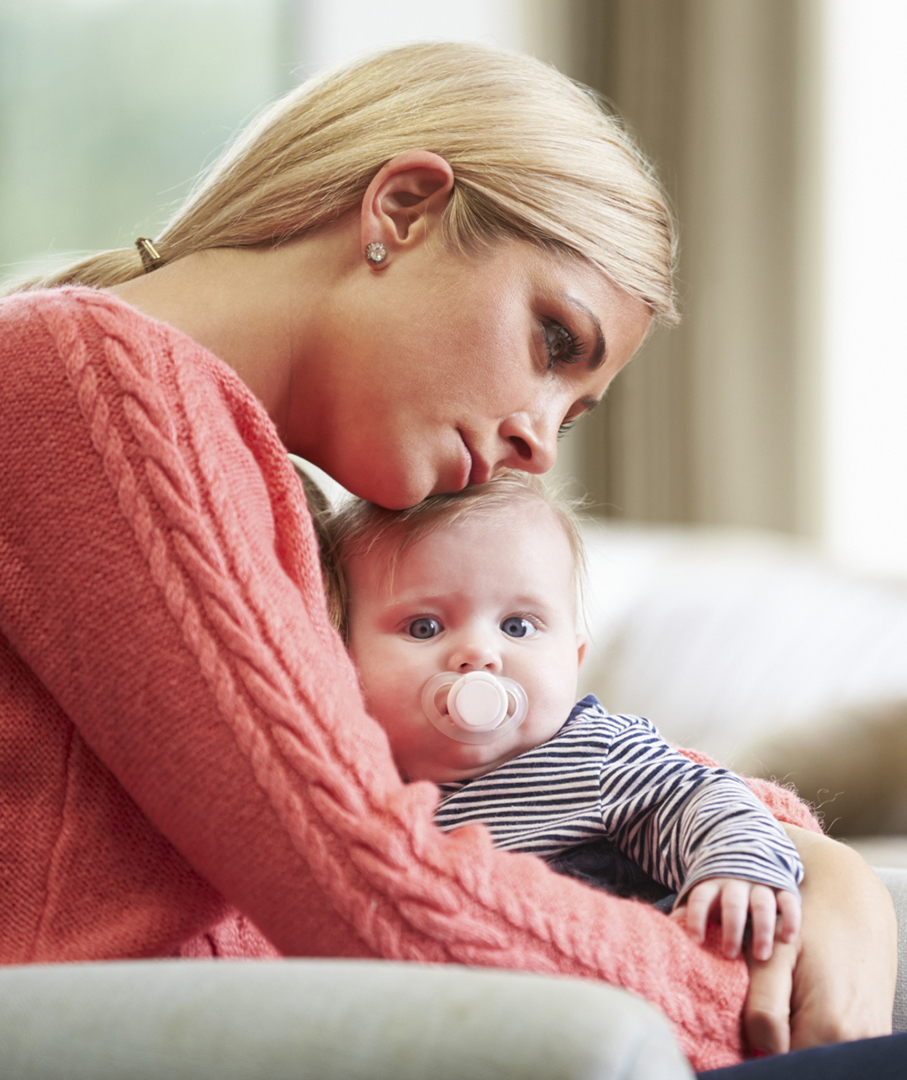Post-traumatic stress disorder (PTSD) occurs in approximately 10% of all women at some point in their lifetime. PTSD tends to occur more commonly in women during their childbearing years, yet we have only recently begun to look more closely at the incidence of PTSD associated with childbirth.
A recent study followed a group of 212 pregnant, primiparous women and followed them prospectively into the postpartum period. Symptoms were assessed immediately after childbirth and at 3 and 6 months postpartum. The prevalence of PTSD symptoms was high after childbirth (12.7%) and remained high throughout the postpartum (13.6% at 6 months). Significant risk factors associated with postpartum PTSD included social isolation (odds ratio, OR=6.6), history of abortion (OR=6.2) or of infertility (OR=10.4). Certain obstetric factors also were associated with increased risk: mothers’ report of prolonged labor (OR=3.5) and mothers’ perceptions of obstetric complications (OR=18.5). Higher anxiety levels around the time of delivery (OR=3.9) also increased the risk of postpartum PTSD.
What is interesting about this study is that it includes only first time mothers. The study did not specifically select for women with histories of trauma or PTSD. Nor did it select for women who had complicated pregnancies or deliveries. So what we see are relatively high rates of PTSD in a healthy population of first-time mothers.
Experiencing a complication at delivery clearly increases the risk of postpartum PTSD, but there are other factors at work here. The authors emphasize the importance of the mother’s perception of her childbirth. The number of hours in labor is less important than whether or not the mother felt that her labor was prolonged. Similarly, the mother’s experience of whether or not complications occurred carries more weight than the obstetrician’s perceptions of whether or not complications occurred.
This emphasis on the mother’s experience is a point that Kate Kripke emphasizes in an excellent article she wrote for Postpartum Progress:
… we know by now that it is not the specifics of the birth events that can lead a mom to be traumatized, but her perception of these events. On paper, a birth might look “perfect” when, in reality, a mom may be walking away from her experience with some significant post-traumatic stress. Physicians, midwives, doulas, nurses, spouses, partners, and family members may assume that all is fine and dandy for a mom after she delivers a healthy newborn when, in reality, her perception is very, very different.
It is also interesting to note that, in this study, infertility leads to a ten-fold increase in risk for postpartum PTSD. We tend to think of women at greatest risk for psychiatric illness while they are undergoing infertility treatment, but clearly this population remains at high risk throughout the postpartum period.
So what are the symptoms of postpartum PTSD? Basically it is clinically similar to PTSD related to other traumas, except that the traumatic event occurs within the context of childbirth. There is a constellation of symptoms which include:
- Recurrent re-experiencing of the traumatic event through flashbacks, nightmares, or distressing intrusive recollections
- Avoidance of things or people that are related to or are reminders of the traumatic birth experience, such as doctors offices as hospitals
- Increased arousal, including difficulty sleeping, heightened anxiety, and irritability
While we are becoming more attentive to screening for depressive symptoms after delivery, we may not always ask about PTSD symptoms, especially when the woman has had what most would consider an “uncomplicated” pregnancy and delivery. PTSD symptoms that go undetected and unaddressed may complicate the treatment of postpartum depression. Again quoting Kate Kripke:
And there can be significant consequences for moms with postpartum PTSD if support isn’t put into place. Moms who suffer from PTSD are less likely to have subsequent births (and are more likely to have an epidural or a scheduled C-Section if/when they do), they are less likely to receive follow-up medical care, they are less likely to breast feed (due to pain, feelings of violation, low milk supply, self doubt and lack of confidence, and/or painful reminders of childbirth), they are more likely to have challenges bonding and attaching with their newborns (again, often due to triggering reminders of events), and they are more likely to experience conflict in their marriages/relationships and experience sexual dysfunction.
Ruta Nonacs, MD PhD
Montmasson H, Bertrand P, Perrotin F, El-Hage W. Predictors of postpartum post-traumatic stress disorder in primiparous mothers. J Gynecol Obstet Biol Reprod (Paris). 2012 May 21. [Epub ahead of print]
Read More:
Katherine Stone’s website Postpartum Progress – Here you will find several great essays about postpartum PTSD from women who have experienced it:
- Mom Recounts How Childbirth Trauma Led to Her Postpartum PTSD
- Why Moms With Postpartum Anxiety or PTSD Are Often Missed
- Postpartum PTSD: Still Fighting To Heal From Her Traumatic Delivery
- Banding Back Together for Postpartum PTSD








Leave A Comment